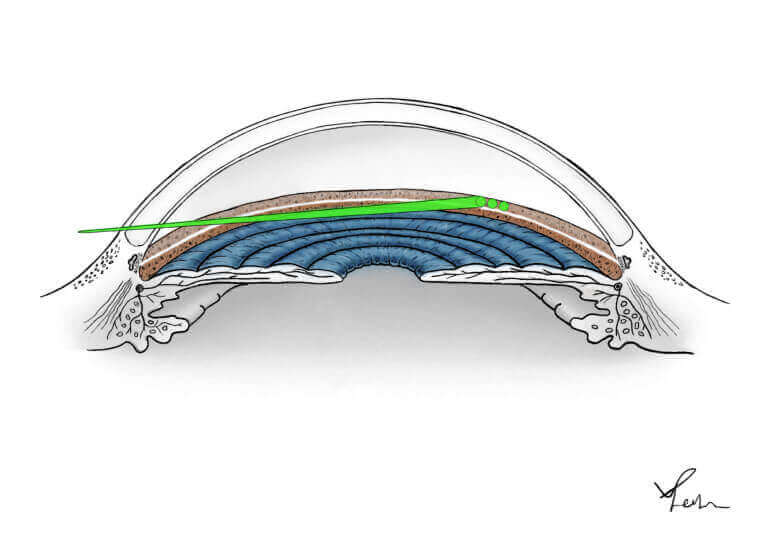Cataract
Cataract is a clouding of the natural lens of the eye, which is important for focusing light to help us see. When the lens becomes opaque, the light entering the eye scatters and images can become blurry. Cataract is the most common cause of curable blindness in North America and cataract surgery is the most commonly performed surgical procedure.
What causes cataracts?
Cataracts develop in older age as the proteins in the natural lens break down and cause it to become cloudy. Age-related cataracts are very common and develop around age 50, but don’t always bother your vision until you are much older. UV light rays from the sun contribute to the development of cataracts.
Cataracts can happen at a younger age if many family members have cataracts, or in patients with strong nearsightedness (myopia). Other common causes of cataract include diabetes, a history of steroid use, a history of inflammation in the eye, previous eye surgery, or eye trauma. There are many other less common causes of cataracts.
What are symptoms of a cataract?
Vision changes from cataracts usually develop gradually over months or years, but occasionally can develop quickly, and may include:
- Blurry vision
- Difficulty reading fine print
- Glare, especially with headlights or artificial lights
- Trouble seeing at night or in dim conditions
- Needing brighter lights to read
- Colours becoming dim or faded
- Seeing double out of one eye

How are cataracts diagnosed?
If you feel your vision changing, then you should schedule an appointment for an eye exam with your optometrist. They will check if you need a new eyeglasses prescription and will screen you for eye diseases, like cataracts. If you have cataracts that are impacting your vision, your optometrist will refer you to an ophthalmologist for treatment.
How are cataracts treated?
The only current treatment for cataracts is surgery, where an ophthalmologist removes the cataract and replaces it with a clear artificial implant, restoring your vision. Cataract surgery is indicated if your cataract is impacting your visual function. If you are not bothered by your visual symptoms, then cataract surgery may not be necessary.
Can cataracts come back?
Once you have had cataract surgery, the cataract cannot grow back, and the artificial implant should last for a lifetime. Your vision may become cloudy years after cataract surgery if the capsule that holds the implant becomes opaque, called posterior capsular opacification (PCO). Your ophthalmologist can cure this with a simple outpatient laser procedure called capsulotomy.
For information on cataract surgery:
1. Cataract surgery
3. Optional non-insured testing and special feature IOL implants























